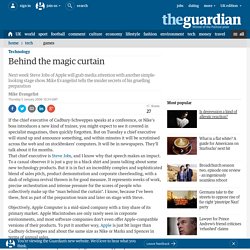

L'importance des silences. Immigration is America's oldest tradition, President Barack Obama said Tuesday.

"We are born of immigrants. That is who we are. Immigration is our origin story," Obama said during a ceremony where immigrants from 25 nations were sworn in as U.S. citizens. "We can never say it often or loudly enough. Immigrants and refugees revitalize and renew America. " Obama's comments drew a forceful contrast between his position and that of Republican politicians, including Donald Trump, who has called for a temporary ban on Muslims entering the country. "In the Mexican immigrant today, we see the Catholic immigrant of a century ago," said Obama, who spoke at a lectern positioned in front of the display of the Constitution. "In the Syrian refugee of today, we should see the Jewish refugee of World War II. " "In the Syrian refugee of today, we should see the Jewish refugee of World War II.
" Obama has said that the governors' refusal to admit Syrian refugees goes against American values.
Presenting for Geeks. Behind the magic curtain of Apple keynotes. If the chief executive of Cadbury-Schweppes speaks at a conference, or Nike's boss introduces a new kind of trainer, you might expect to see it covered in specialist magazines, then quickly forgotten.

But on Tuesday a chief executive will stand up and announce something, and within minutes it will be scrutinised across the web and on stockbrokers' computers. It will be in newspapers. They'll talk about it for months. That chief executive is Steve Jobs, and I know why that speech makes an impact. To a casual observer it is just a guy in a black shirt and jeans talking about some new technology products. Objectively, Apple Computer is a mid-sized company with a tiny share of its primary market. Such comparisons come up short in trying to describe Apple's place in the world of business, because they leave out a key factor: Steve Jobs. When Apple announces something new, people pay attention. How to cure stage fright: The science behind public speaking. Palms sweaty.

Heart racing. You know the feeling. Whether it’s five people or fifty, public speaking is a gut-wrenching experience for most of us. Before co-founding ooomf, I had a huge fear of speaking in public. Any time I had to present something in front of more than a handful of people, my stomach would turn to knots and my throat would get so tight I wouldn’t be able to speak. The reality is, if you’re planning on presenting pretty much anything in your life (which you most likely will), you’ll need to be able to effectively communicate your ideas in front of at least a few people.
To get over my fear of public speaking, I realized a good place to start would be to understand why I was getting stage fright in the first place. I thought it would be interesting to share with you my research for how I learned to overcome my fear of public speaking in the last year while founding a company. What is stage fright really What happens in our brain. Effective Presenters Don't Slow Down. Have you been told to slow down when you’re presenting?

There’s only one legitimate reason for slowing down. That’s if you go so fast that your words get blurred. Otherwise there’s nothing wrong with speaking fast. Watch this video of Gary Vaynerchuk – would you want him to slow down? This is the way Gary speaks. If you’re a naturally fast speaker and you try and slow yourself down, you won’t be being yourself. There’s just one difference. Why are the pauses useful? The audience can process what you’ve saidIt gives you time to think about what you’re going to say next. But, there’s one problem with pausing – it’s difficult to remember to do it.
Instead think chunking. Chunking is talking in chunks of words. Try out chunking by reading something out loud. Credit: My partner and gifted presentation coach, Tony Burns, came up with the concept of chunking.